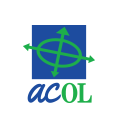In addition to the Personal Property Registry System (PPRS), there are a number of other government and non-government databases and services that pertain to property, credit, business financing, etc. If PPRS is not what you are looking for, you might find it here.
Real property registries are provincial and territorial systems with names like Land Registry, Land Registration System, Land Title System, and Registry of Deeds. These systems record the current and past owners of the land, including transfers of ownership. These systems also record interests in land such as mortgages and judgments.
There are personal property security interests which must be registered in both the land registry and the Personal Property Registry, for example: crops and fixtures (such as structures temporarily attached to land).
Unlike the land registry, PPRS does not provide definitive information about the ownership of property. A “security interest” is not the same as ownership.
Motor vehicle registries are provincial and territorial systems that record vehicle ownership and operator licensing information.
Motor vehicle registries are very important tools for determining where in Canada a vehicle is located (registered). When a debtor or collateral move from one jurisdiction to another, it may be necessary for an additional PPRS registration to be created in the new jurisdiction.
Unlike motor vehicle registries, Personal Property Registries do not define the ownership of the motor vehicle. A “security interest” is not the same as ownership. For example, the person (debtor) listed in the registration may have been a co-signor on a loan or may have already sold the vehicle.
In the United States, motor vehicle registries also record liens as part of a vehicle “title”. As a result, some people from the USA will approach the motor vehicle registry instead of the Personal Property Registry for information about security interests. This is not applicable in Canada.
Corporate registries are provincial and territorial systems that record the legal name and key pertinent information for corporate entities. Registries may also include other entities such as registered partnerships, associations, syndicates and joint ventures.
Accurate names are very important in PPRS. When a debtor or secured party is a corporation, the corporate registry is a definitive source for an accurate name.
In some jurisdictions around the world, the corporate or company registry is also a place to record “charges” against a company’s assets. This is not applicable in Canada. Instead, if pertaining to personal property, such “charges” would be registered as security interests in the Personal Property Registry.
Credit bureaus collect information from a variety of sources in order to profile an individual’s or a company’s credit worthiness. Information collected typically includes current and previous loans. In Canada, credit bureaus are operated by private companies, such as Equifax and TransUnion.
Unlike a Personal Property Registry, the credit bureau is not an official, public record of a security interest in property (collateral).
PPRS does not provide information about past (inactive) loans, unsecured loans or the borrower’s history of payments.







